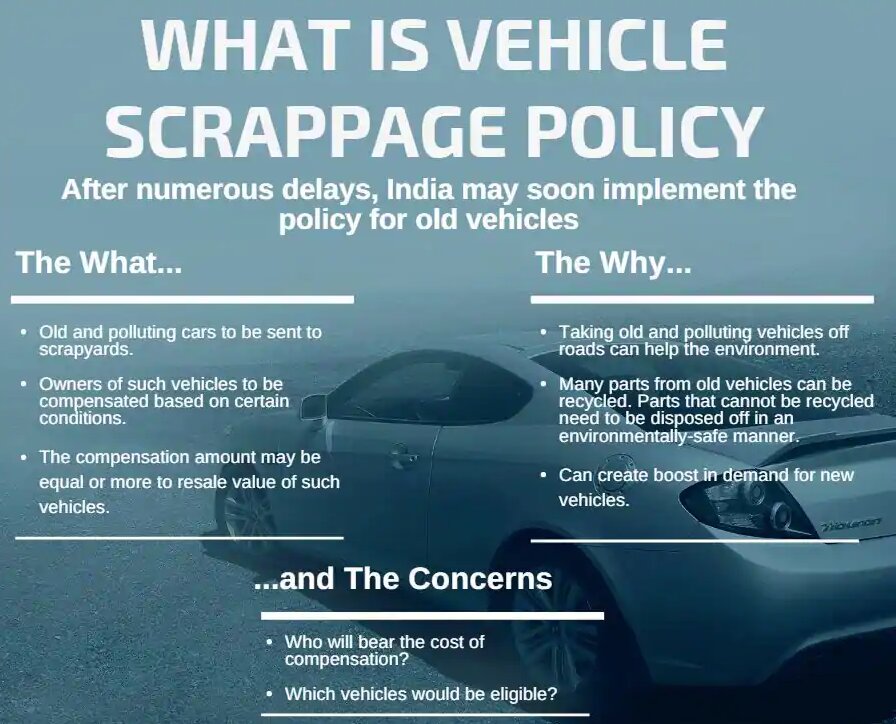Governance
Vehicle Scrapping in India
- 16 Oct 2020
- 4 min read
Why in News
Recently, the Centre for Science and Environment (CSE) has released a report titled “What to do with old vehicles: Towards effective scrappage policy and infrastructure”, which suggests parameters of an effective vehicle scrapping policy for India.
- CSE is a non-profit, public interest research and advocacy organisation based in New Delhi. It researches into, lobbies for and communicates the urgency of development that is both sustainable and equitable.
Key Points
- About the Policy:
- The Ministry of Road Transport and Highways has formulated a note for the Cabinet on the creation of an ecosystem for voluntary and environment-friendly phasing out of unfit and old polluting vehicles.
- The proposed policy awaits for Cabinet’s approval and once approved, will be applicable on all vehicles.
- Concerns on Vehicles:
- India will have over two crore old vehicles nearing the end of their lives by 2025. These, along with other unfit vehicles, will cause huge pollution and environmental damage.
- Existing Initiatives:
- Bharat Stage VI (BS-VI) Emissions Standards:
- It provides an opportunity to renew the fleet with significantly cleaner vehicles as BS-VI heavy-duty vehicles are designed to emit 35 times lesser particulates compared to BS-I vehicles.
- Electric Vehicle (EV) Incentives:
- In August 2020, Delhi government notified the Electric Vehicles Policy 2020, which lays the maximum emphasis on replacement of two-wheelers, public transport and shared vehicles and goods-carriers instead of private four-wheelers, with EVs.
- National Clean Air Programme:
- Under it, polluted cities have included old vehicle phase-out as part of their clean air action.
- Bharat Stage VI (BS-VI) Emissions Standards:
- Suggestion by the Report:
- Safe disposal and material recovery should be the critical parameters of an effective vehicle scrapping policy.
- The policy must leverage the opportunities to maximise emissions gains from the replacement of end-of-life vehicles and recover material from the wasted clunkers (dilapidated vehicle or machine) for reuse and recycling.
- There is a need to link economic recovery and fiscal stimulus with the replacement of older heavy-duty vehicles with BS-VI vehicles.
- The scrappage scheme should incentivise replacement with EVs for personal cars and two-wheelers.
- Vehicles should not contain toxic metals like lead, mercury, cadmium or hexavalent chromium other than specified conditions.
- There should be efforts to include Extended Producer Responsibility (EPR) and making the rules legally binding.
- Environmentally sound vehicle scrappage infrastructure should be scaled up country-wide for safe disposal of waste and for material recovery for recycling like steel, aluminium and plastics.
- India needs a well-designed scrappage policy to lower emissions, reduce environmental damages and recover material from clunkers as part of post-Covid-19 efforts towards a green India.







